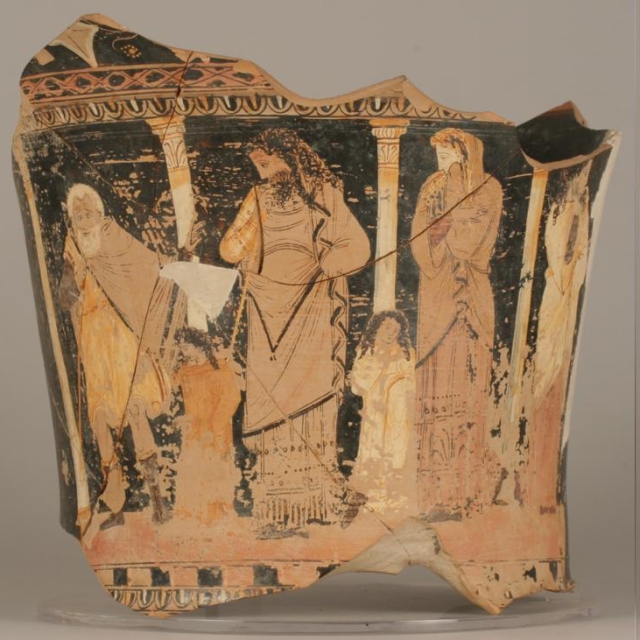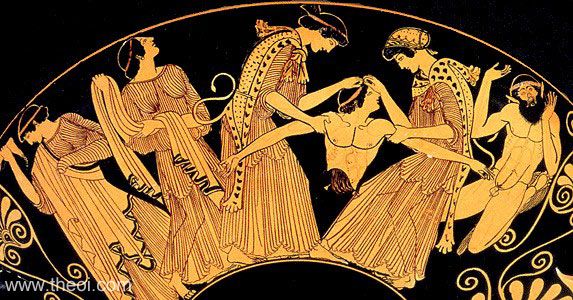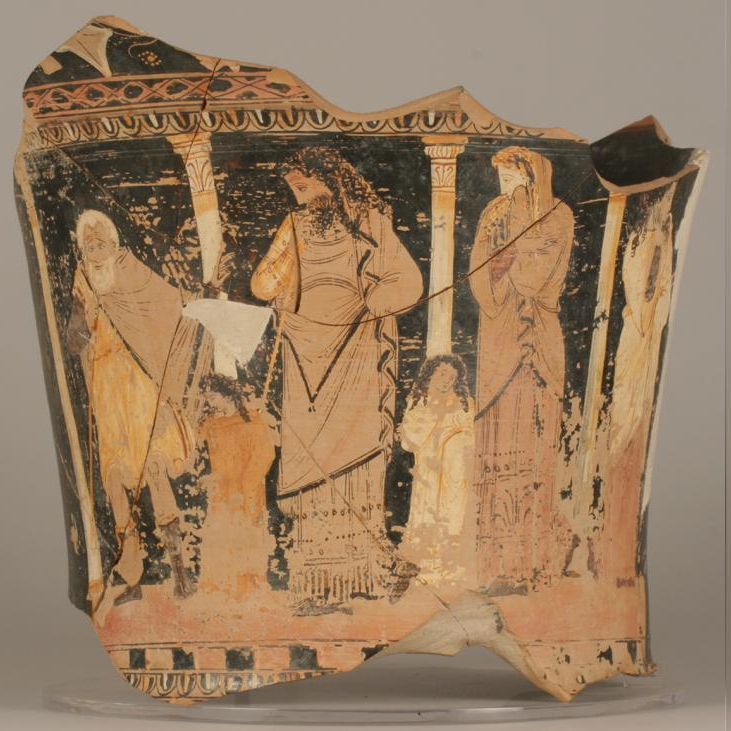I would argue that the theme of family in general, and its connotations, is the real backbone to Greek tragedy, and therefore the most important universal theme. The importance of the family or of the oikos (household) is due to the major role that the family/oikos played in ancient Greek life and societal values.
Family acts as the motivating factor in both Sophocles’ ‘Oedipus Rex’ and Euripides’ ‘Bacchae‘. The fatalistic prophecy that dictates the events of ‘Oedipus Rex’ is as follows: Oedipus would kill his father and marry his mother. Therefore incest, illicit relations between family members, becomes a crucial event in this tragic play. Indeed Sigmund Freud’s Oedipus theory relates to this, as the psychologist argues that a young boys first love is his mother and first hate is his father. Similarly, the cause for the tragedy in ‘Bacchae’ is due to rejection from family, Bernard Knox suggests that such rejection from family is worse for Dionysus than any other form of rejection. It was Agave and Ino, sisters to Semele – the mother of Dionysus, that ridiculed her for her pregnancy, deeming it to be untrue that Zeus could have fathered Semele’s child. It is also Pentheus, cousin to Dionysus, that rejects the gods rights and worship, therefore making the impiety much greater. Therefore, family acts as the backbone to the cause of both plays’ tragedies.

Part of the tragedy of both plays is also relevant to family because, as many critics have have prior mentioned, tragic heroes have a tendency to impact those around them negatively. As a result of Oedipus’ sins that he ignorantly committed, his whole family suffers tragically. His wife/mother Jocasta kills herself as a result of learning the truth and we learn in the rest of ‘the Theban plays’ trilogy , ‘Antigone’ and ‘Oedipus at Colonus’ that three out of four of his children die and the remaining child, Ismene, is unmarriageable on account of her father’s sins. In this way, Oedipus commits the greatest sin possible to an ancient Greek man, he causes the death of his family line. Indeed, the importance of family in the Oedipus myth is shown in a fragment piece by the Caodarso painter that depicts Ismene, Antigone and Jocasta onstage as a family unit alongside Oedipus. Pentheus similarly causes the death of his family line as he is murdered gorily on account of his irreverence to the god, as seen on the red figure kylix depicting his death. As a result of this, Cadmus receives the most tragic fate of all, as suggested by Bernard Knox, as he lives to see the family line , which he tried so hard to protect, die along with his grandson (who was killed by his own mother, furthering the tragedy of the climatic event). Therefore, family acts as the backbone to these two Greek tragedies because the death of the family line creates part of the tragedy in itself.

Throughout both plays we also see affairs of the state and of the family household intermixing. In ‘Oedipus Rex’ one of the agons occurs between Oedipus and Creon, the former’s brother-in-law, thus making the theme of family important even in terms of common dramatic devices. They argue over whether Creon is trying to usurp the kingship but Creon states that he enjoys the power of a high-ranking nobleman without the responsibility of being ruler. This fear of family members taking over power from one another would have been a poignant issue for concern in the ancient world, making the play’s theme of family contextually relevant. We also see the affairs of state, and family mixing in Oedipus’ opening speech where he refers to his citizens as ‘my children’ – in this way the lines separating the oikos and the polis become blurred in this tragedy, emphasising the importance of the theme of family. This separating line is also blurred in ‘Bacchae’ when we see Cadmus urging his grandson pentheus ‘to tell a lie’ to maintain order in Thebes as by accepting Dionysus as a god he would presumably relinquish his hold on the Theban women. The fear of the death of the family line also intermingles state and family as without a naturally successive leader, the state could be thrown into political confusion and turmoil, an ever constant fear of the turbulent Athenian city state. However, in Athens leaders were elected and were not successive through heritage and therefore, tragedy’s theme of family inadvertently champions Athenian democracy and its way of doing things. Thus making the theme of family important to Greek tragedy as it also helps promote Athens in form of literary propaganda.
In conclusion, family ,and its connotations, is the most important theme in Greek tragedy. This is because it is played upon greatly by both Sophocles and Euripides, partly due to their presentation of the tragic hero’s peripeteia’s effect on family and the propagation of the fear towards the death of the family line.
